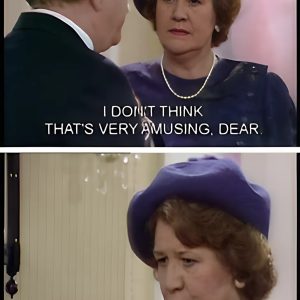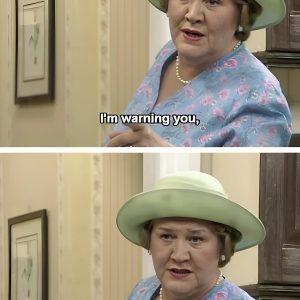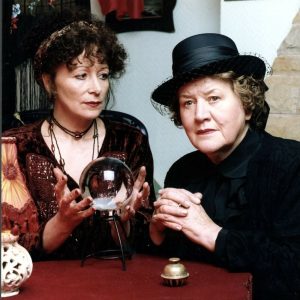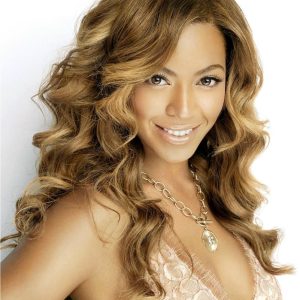Patricia Routledge Returns to the Stage, Guided by the Power of Scripture and Song
Patricia Routledge is back where she belongs: under the warm glow of the stage lights, commanding attention not with flamboyance or spectacle, but with the quiet authority of one of Britain’s finest dramatic voices. Now 82, the actress whose name has become synonymous with Hyacinth “It’s Bouquet!” Bucket from the beloved BBC sitcom Keeping Up Appearances has chosen a deeply personal and profoundly spiritual path for her theatrical return. The stage, it seems, never truly lets go of its greatest performers—and Routledge, after a life rich in drama, comedy, and music, is answering its call once again.
At the heart of her return is a reverent yet fiery passion project: a staged reading of the King James Bible at the National Theatre, marking the 400th anniversary of this literary and religious cornerstone. With characteristic zeal, she describes the tales she brings to life on stage—David, Saul, Jonathan, the Queen of Sheba, Bathsheba—with a twinkle in her eye and a voice dipped in amused horror. “Terrible people!” she exclaims. “It’s worse than EastEnders! Incest, betrayal, murder—you don’t like someone? You get them popped off!”
It is vintage Routledge: erudite yet humorous, reverent yet playfully irreverent. She is clearly relishing the drama embedded in the ancient text, a performance that unites her reverence for language with her enduring commitment to the theatrical craft.
Seated in a modest café in Chichester, where she has lived for the past 13 years, Routledge speaks of her six-decade career with the kind of disbelief usually reserved for overnight success stories. “I was never stage-struck,” she says with firm conviction. “I’m not stage-struck now. Nobody’s more surprised than I am that I have, in fact, spent my life doing this.”
But while she may act surprised, those who have followed her career—from her Olivier Award-winning performance in Candide to her collaborations with Alan Bennett—know better. Her career has been carved not from caprice but from a fierce loyalty to character and language. “History!” she declares, her blue eyes sparking. “And character. Architecture! Here, in Chichester, you dig to plant a bulb and uncover a Roman mosaic. Thrilling!”
That same excitement, it turns out, now fuels her two current theatrical undertakings. In addition to the Bible readings, Routledge has been touring the country with Admission: One Shilling, a poignant homage to wartime pianist Myra Hess. The production blends readings from Hess’s letters and interviews with live piano performances by virtuoso Piers Lane. “Her commitment to the music—so still, so dignified. None of that throwing oneself about the keyboard you see today,” Routledge sighs. “Why must people spell out what it costs them? It’s the same in acting. There are some brilliant actors today, but you’re always conscious of the technique.”

Such observations are not complaints so much as a veteran’s musings on the shifting theatrical landscape. Routledge is exacting in her tastes and unapologetic in her standards. “For a very, very long time, I’ve only done what I’ve really wanted to burn up energy on,” she explains. “If you can’t wake up in the morning excited about what you’re doing that night—twice on Wednesdays and Saturdays, mind—it’s not worth it.”
Though best known for her television work, Routledge’s theatrical roots run deep. She began in rep at the Liverpool Playhouse and has worked across stage and screen with a who’s who of British drama. One of her most cherished collaborators has been Alan Bennett, who crafted roles specifically for her, including Peggy Schofield in A Woman of No Importance. Bennett’s sharp, subtle writing is a natural fit for Routledge’s linguistic sensibilities. “This great, rich language!” she exclaims, her voice rising in admiration. “There’s a trend now to speak English as badly as possible. I’m almost tempted,” she adds with a smile Hyacinth would approve of, “to start a society for the reinstatement of the letter ‘t’ and the banishment of the glottal stop.”
Even when speaking of past disappointments, Routledge does so with wit rather than bitterness. She recalls with some irritation the BBC’s unceremonious cancellation of Hetty Wainthropp Investigates, a show that had endeared her to another generation of viewers. “A fifth series was commissioned,” she recounts. “We waited and waited. Then some 10-year-old summoned the producer into his office and said, ‘Oh, we won’t be doing any more.’ That was it. The BBC never had the courtesy to tell us directly.” Though she didn’t initially believe the decision was fueled by ageism, hindsight has cast a different light. “I think in retrospect—yes,” she says quietly.
Despite such setbacks, Routledge remains a treasured figure in British entertainment. Fan mail still arrives weekly, and she makes a sincere effort to respond to each letter. The most touching, she says, come from unexpected corners. “Nine-year-old boys are the best. They write, ‘My dad laughs at a woman like you across the road.’ There are people like Mrs. Bucket everywhere.”
As for Hyacinth—the prim, perfectionist thorn in everyone’s side—Routledge views her with a wry detachment. “The dreadful Mrs. B,” she chuckles. “But it would be churlish not to appreciate what she brought me. If people come into a theatre because they know me from her, I couldn’t be happier.”
There’s an underlying message to Routledge’s enduring appeal: integrity. In a time when fame can be as fleeting as a tweet, she has built a career on substance. Her return to the stage is not about nostalgia or reinvention—it’s about reaffirmation. Of her talents. Of storytelling. Of the enduring power of words, whether sacred scripture or Bennett’s brilliantly observed monologues.
And when Patricia Routledge takes the stage, whether reciting the tragedies of the Old Testament or evoking the quiet heroism of Myra Hess, she reminds us of the kind of performer we don’t often see anymore: one who serves the story, reveres the language, and never—ever—underestimates the intelligence of her audience.
She may not be stage-struck, but make no mistake: the stage is still very much struck by her.
Would you like a version of this formatted for print or web layout?





